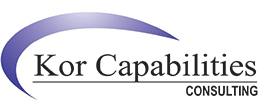You may have heard the expression, “Your technical skills will get you hired but your lack of people skills can get you fired.”
I would characterize most of my coaching clients as highly skilled and strong performers in their field of expertise whether they be accountants, actuaries, engineers, architects, IT managers, project leads or executive assistants.
In fact all of my coaching clients have achieved their current level of responsibility and success because of their technical ability to get work done with efficiency, economy and excellence.
So why are they being encouraged to seek a career coach to help breathe new life into a faltering career?
The following story will shed light on the answer:
A senior sales account manager who was at the top of her game was receiving consecutive awards for top salesperson for increased revenue and client growth. She had deep product knowledge and worked with a sense of urgency and commitment to deliver service that met her client needs every time. Her motto was “under-promise and over-deliver” which delighted her clients as she made each of them feel important and heard. That was the client perspective.
Further discussions and exploration of the work environment back at the office revealed very different behaviour. The inside support team complained that she was unreasonable in her demands. Everything was top priority and she micro-managed every detail of their work from the sales brochures they created to how they handled incoming calls. Basically things had to be done exactly her way or no way! They felt demeaned, overpowered and terribly unappreciated. Her philosophy on the last point was “Why should I thank people for doing their jobs? I work hard and certainly don’t expect a pat on the back for every sales call I make.”
Although she was a high performer and a top producer, the tangible and intangible costs to the company could no longer be ignored. Employee complaints were mounting at her abrasive communication style, angry outbursts were becoming common and few staff wanted to work with her directly. Some even threatened to quit if her behaviour toward them didn’t change.
Clearly in this case having excellent customer service and sales skills is simply not enough. Demonstrating high emotional intelligence at the office as well as with customers was going to be imperative if she didn’t want her career to flat line.
We started by breaking down each of the concerns people expressed about her communication style, micro-management and lack of appreciation for peoples’ time and hard work.
Here are some strategies we focused on by actually drawing on her strengths as a senior account manager:
- She was to focus on treating internal staff as an extension of her client base. By asking thoughtful questions, listening to their needs, concerns and ideas she can be more collaborative and creative about the way work is prioritized and executed.
- Trust that staff know how to do their job and only offer support when asked. Just like her clients trust her to deliver on her commitments she needs to extend that courtesy to staff without hovering, demanding or taking over.
- Maintain emotional equilibrium when communicating with staff around concerns and frustrations in the same way she handles customer complaints and objections. Nothing alarms people more than managers who are emotionally volatile and unpredictable. Her customers would not tolerate such behaviour so why should staff?
- Say thank you graciously every time someone helps her accomplish a task just as she thanks her customers every time for giving her an order or making time for her. There is no quota on gratitude as long as it is expressed in a meaningful and real way. We certainly don’t want to be thanking people just for showing up to work but we definitely want to thank them when they go out of their way to accommodate an urgent request, however small it might be.
I am pleased to say this coaching client managed to regain her staffs’ trust slowly and over time by apologizing for her conduct, being truthful about the changes she was trying to make, responding to feedback without emotional volatility and giving everyone an important stake in the outcome of the work being accomplished through reward and recognition.
Sustained personal and professional success, however we personally want to define that, will only stand the test of time when we can demonstrate skills not just in our chosen field of expertise but also how we treat the people we interact with along the way no matter how small or big a role they play.

